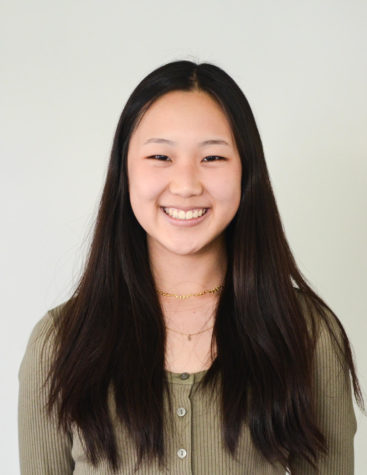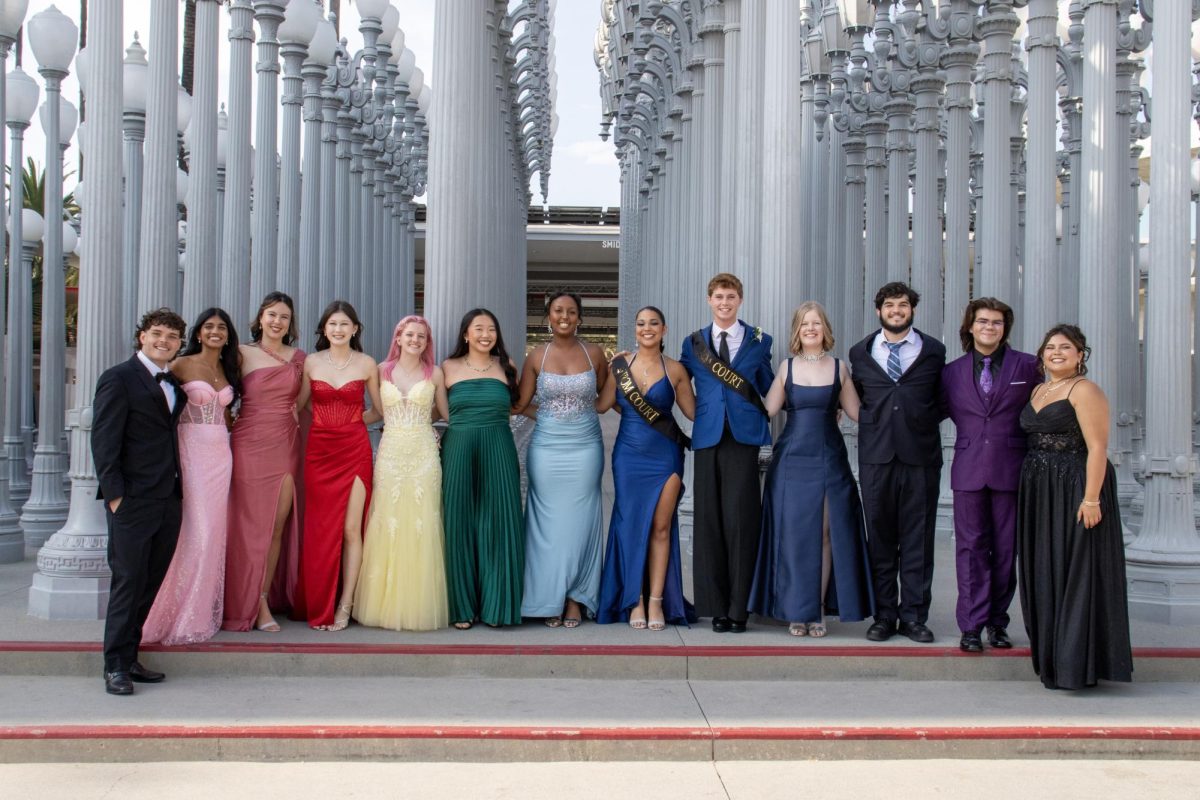Planting Hope, One Bracelet at a Time
Aaliyah Martinez (10) engages younger Girl Scouts in her Gold Award project by explaining what mammograms are and how they relate to breast cancer. Martinez’s aim was to bring comfort and support to women called back for a second mammogram. Photo courtesy of Aaliyah Martinez (10).
June 8, 2021
The arrival of a single letter in the mail can be enough to spell uncertainty and anxiety. For women called back for a second mammogram, fears about the threat of breast cancer can be overwhelming: written into the lines of a summary report is the possibility of a dramatically life-altering disease. Touched by the experiences of loved ones affected by cancer, Girl Scout Aaliyah Martinez (10) centered her Gold Award project around caring for women called back for an additional mammogram.
Mammograms are preventative X-ray scans for breast cancer. All women above the age of 45 are advised to get regular mammograms, as they are essential for early detection of breast cancer. For most women, mammograms are routine appointments with no follow-up. But when an abnormality is detected, patients are called back for additional diagnostic scans. The majority of abnormalities do not indicate breast cancer ― according to the American Cancer Society, less than 10 percent of women with abnormalities in their mammograms have breast cancer. But statistics alone are often not enough to quell the anxiety of finding out that cancer is a possibility.
To mitigate the emotional effects of receiving a mammogram callback, Martinez created informational pamphlets and bracelets to be included with the letters. Her aim was to spread hope and positivity among affected patients, as well as provide strategies for managing stress and dealing with uncertainty.
Martinez saw the need for supporting affected patients after people close to her dealt with breast cancer. “When my aunt received her letter after the first mammogram she was anxious when it said there was something abnormal,” Martinez shared. “While my aunt was going through treatment, I wanted to help in any way I could.”
The bracelets Martinez made to accompany each letter feature a plumeria flower charm, which symbolizes hope and positivity. Her pamphlets offered suggestions for dealing with stress, such as meditating, journaling, and reading. In the pamphlets, Martinez wrote to letter recipients, “I want you to remember that you are not alone and to have hope no matter what.”
Several patients used some of the stress-relief techniques listed in the pamphlets, such as talking to friends, watching a sunset, and practicing yoga. One patient reached out to Martinez to express gratitude for “the encouraging note about hope and peace of mind during times of waiting.”
This initiative served as Martinez’s culminating Gold Award project, reaching 50 patients through more than 90 hours of service. Her project makes her a candidate for the Gold Award, the most prestigious award in Girl Scouts, which requires recipients to spend at least 80 hours working to solve an issue in their community. Martinez spent the majority of her hours making pamphlets and bracelets, but she also spent time educating a younger Girl Scout troop about mammograms and showing them how to make bracelets.
For Martinez, her project holds more significance than just a project for an award. Cancer has resulted in loss and distress in her own family, so the issue holds a special place in her heart. “I want others who hear about my project to understand how scary cancer can be,” she expressed.
But despite the very real fear of facing a deadly disease, Martinez also wants those affected by cancer to remain strong and hopeful. Her project, centered around both validating these fears and alleviating anxiety, reveals the truth she hopes to cultivate in cancer patients and their loved ones: “No matter how alone you may think you are, there will always be someone willing to reach out…remember to be strong, not for others but [yourselves] as well.”





